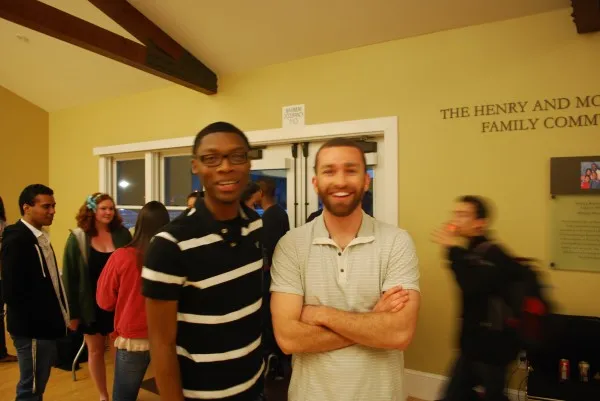Table of Contents
Robbie Zimbroff ‘11 and Will Wagstaff ‘11, the newly-elected executives, agree that apathy has risen amongst students. They told the Review, “We knew that we were going to have trouble getting people engaged in this election from the start, so the turnout wasn’t really a shock to us. To be honest, there have been gripes about how relevant the ASSU is to students’ lives our whole time at Stanford, so we really aren’t worrying about low turnout or interest in the election as having had anything to do with us. Hopefully, though, if we work on issues that will improve students’ day-to-day lives and students see that the ASSU can work on their behalf, more people will turn out to vote next year.”
However, there could be reasons other than just apathy that could be to blame. While he agrees that apathy is a factor, Adam Adler ’11, this year’s election commissioner, added that fewer candidates (18 for Senate positions, as compared to much higher numbers in the past), including only one slate running unopposed for Junior class presidents, meant that there were fewer students campaigning for support. But this could very easily bring us back to our earlier problem of students’ irreverence and dissatisfaction with the ASSU, manifesting in smaller numbers of students hoping to snatch elected positions.
With 2820 votes, Zimbroff Wagstaff also grabbed 87% of the total votes for the executive, which is an unnaturally high proportion. When asked whether this had to do with the events surrounding the MacGregor-Dennis/Druthi campaign, they responded, “it’s hard to say. Again, we hope that people liked our ideas more, but it was certainly a crazy campaign. Some of what played out went beyond the scope of the campaign, but at the end of the day we’re all students, and we wouldn’t want to see this happen to ourselves or our friends.”
While pre-election petition indicators forecasted a much better performances from the MacGregor-Dennis camp, the roller coaster ride of extreme accusations almost certainly motivated voters to detract from that path.
The Students of Color Coalition (SOCC) had another tremendous year, with a clean sweep of victories across all the candidates that they had endorsed for senate and executive. Although they would not speak specifically of their SOCC endorsement, Zimbroff-Wagstaff believe that endorsements work as a great signaling tool, remarking, “Hopefully our endorsements helped us– especially seeing them all together. We hope the endorsements showed people that our ideas were ones that everyone could get on board with and that our philosophy of moving beyond jargon and using common sense could go a long way in student government.”
The issue of campaign finance seems to come up in one way or another every year, and this election was no exception to the rule. It seems as though both the Election Commission and candidates were annoyed by their experiences. “We received public financing for our campaign,” said Zimbroff-Wagstaff, “but have yet to be reimbursed for our expenses due to some confusion about the amount we will be reimbursed due to conflicting language in bills passed in 2009 and 2011.”
Adler was more critical of the entire process. “The ASSU has no institutional memory,” he claimed, “I asked [parliamentarian and record keeper] Alex Kindel to send me an updated version of the regulations right when I started. It took him until January to do this and his version was woefully incomplete. It seemed like I would get a new regulation to enforce each week during Winter quarter, sometimes the regulations were conflicting. No one knew what bills had passed… It was a complete mess.”
He also voiced his concerns about candidates’ seemingly aloof approach in dealing with campaign finance. “The candidates were sloppy and kept missing deadlines for public financing. The senate passed no fewer than 5 deadline extensions this year. I think candidates needed a greater sense of responsibility when it came to meeting deadlines and following regulations,” Adler told the Review.
Meanwhile, the lack of importance placed by students on ASSU elections was apparent on campus. There were fewer candidates coming up to random students in dining halls to offer information, less tabling on White Plaza, and far fewer emails (although that never feels like few!). Adler seems to think that controversial ballot measures often increase voter turnout. While this is true, it still does not explain why voter turnout had fallen last year as compared to the year before, even with the ROTC measure on the ballot.
But for whatever reason, it remains true that students are consistently caring less about student government, and it is really up to the new batch of senators, as well as our new ASSU president and vice president, to make the ASSU a relatable and somewhat revered institution again.





